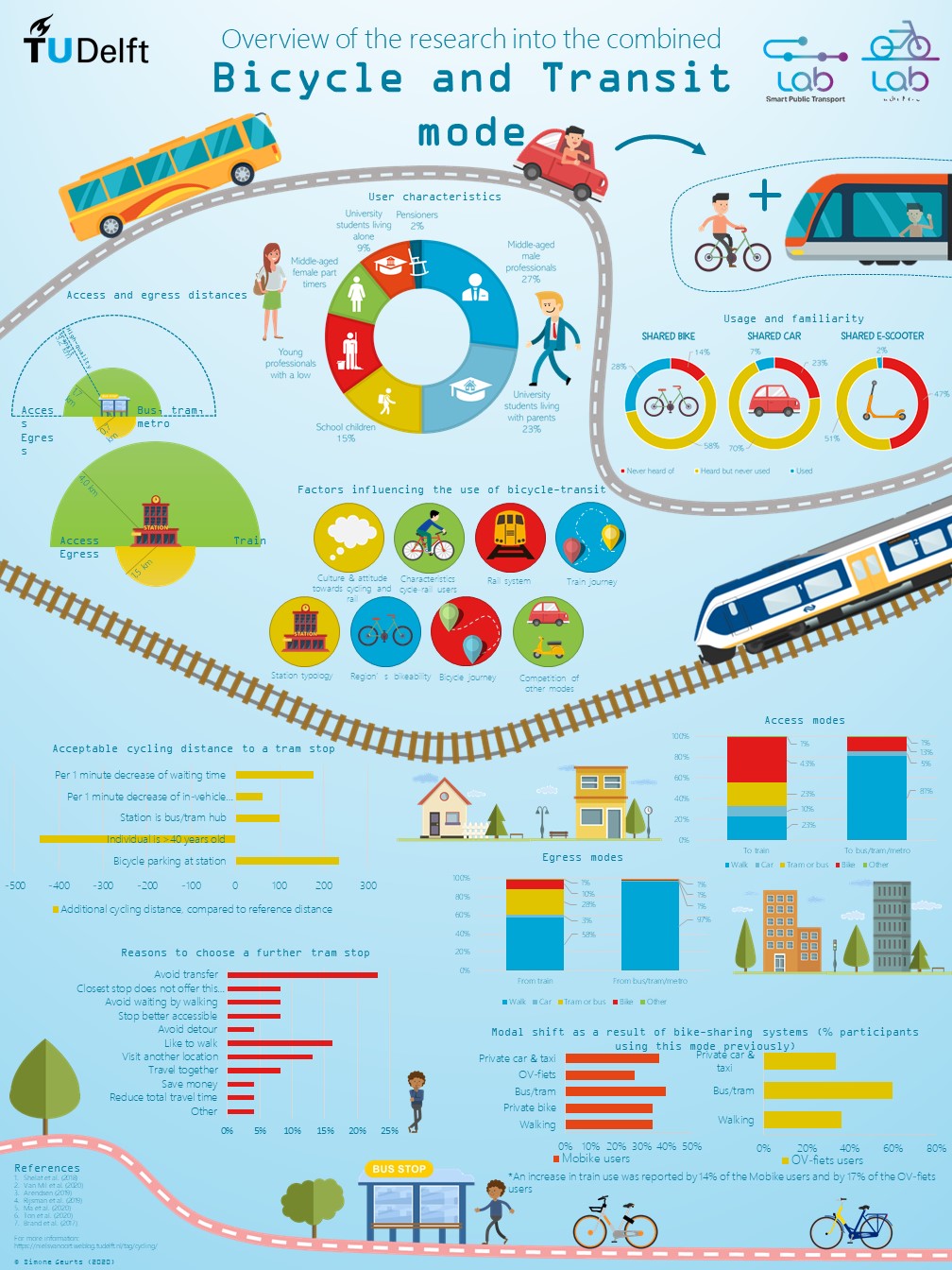Posted in 2020
Workshop Future of Public Transport @Forum ISTS
Due to societal and technological trends, our mobility system and patterns might change. New modes are entering (and leaving) the market, while conventional modes are improved. In this workshop we looked to the future of public transport from the perspective of authorities and operators. The city of The Hague and the Dutch railways (NS) shared their visions on the public transport of the future.
Find the general workshop presentation HERE
Find the presentation of Emile Jutten (City of The Hague) on the national and regional vision on public transport HERE and an animation of the vision HERE
Find the presentation of Mark Oldenziel (NS) on the short term innovations and plans of the railways HERE and an animation of the vision HERE
How do Dutch train passengers (expect to) travel during and after Covid?
Thursday 5th November, the ETC Programme Committees for Local Public Transport and Rail Policy and Planning hosted a Covid webinar on: “How do Dutch train passengers (expect to) travel during and after Covid? Insights from a longitudinal panel of over 20,000 train passengers”, by Mark van Hagen (Netherlands Railways) and Niels van Oort (TU Delft). Together, Mark and Niels initiated a longitudinal survey amongst Dutch train travellers and how they cope with Covid with regard to their (future) travel patterns. In this webinar, they will share the main findings and lessons. A reflection from a wider EU perspective will also be given by András Munkácsy, Head of the Department for Transport Management at the KTI Institute for Transport Sciences, Hungary.
Find the presentation HERE
Travellers’ preferences towards existing and emerging means of access/egress transport
This research elaborates on access/egress transport in further detail and aims to provide insights in the preferences of travellers for existing and new means of access/egress transport such as shared vehicles and on-demand ride services. In this research, a stated preference experiment was performed with Dutch train travellers. In addition to the modal preferences, the expected impacts on land use near train station were assessed.
Find the ETC presentation of Bas Stam HERE
Subjective Beliefs regarding Waiting Times in Public Transport Networks in the Netherlands, Greece, and Portugal
Waiting times in public transport networks (PTNs) are inherently uncertain for travellers and, similar to other service industries, such uncertainty is likely to be a major cause for anxiety and frustration (Maister, 1985). While real-time information regarding waiting times is an important development in mitigating such negative feelings, they do not completely remove uncertainty. Even when information is provided, travellers process it on the basis of their individual attitudes, habits, experiences, and contemporary contextual variables. Yet, previous studies on behavioural responses to travel time unreliability have either (unrealistically) assumed that travellers know the objective travel time distributions or have studied behaviour within the artificial context of travel simulators. Quantifying travellers’ attitudes and perceptions — subjective beliefs — regarding waiting times may be critical for assessment of travel satisfaction and subsequently choice behaviour.
In this research, a stated preference experiment is used to quantify travellers’ attitudes and perceptions — subjective beliefs — regarding waiting times in public transport networks in three European countries. Results and potential policy implications are presented at the European Transport Conference (ETC).
Find the ETC poster of Sanmay Shelat HERE
Overview Bicycle+Transit research

Download the poster HERE
References:
Shelat et al.(2018), Characteristics bicycle and transit users
Van Mil et al.(2020), Factors affecting the bicycle and transit mode
Arendsen et al. (2019), Shared mobility for the first and last mile
Rijsman et al. (2019), Walking and bicycle catchment areas of tram stops: factors and insights
Public Transport and Covid-19
How did Covid-19 affect public transport worldwide? BSc graduate Gerben van der Horst developed multiple time lapses to show the measures taken worldwide from January until June:
(Partial) shutdown of public transport services time lapse
Facemasks regulations time lapse
Lockdown time lapse
Find more information, references and data acknowledgements in the full report of Gerben van der Horst: HERE
In addition, find our Smart Public Transport Lab thoughtpiece on Public Transport in and after Covid-19: HERE
An overview of Covid-19 research of the Smart Public Transport Lab is provided: HERE
Podcast: Bicycle+transit mode
The bicycle+transit combination has been a growing mode for years now. It could offer the best of both worlds, if it is well designed with an integrated perspective. In this Dutch Cycling Embassy podcast with Geert Kloppenburg and Chris Bruntlet, we discuss about the opportunities and challenges regarding shared bicycle systems.
Find the podcast here:
Podcast Bicycle+Transit
Find the related references here:
Insights and overview research findings (lecture slides; Van Oort, 2020)
Shelat et al.(2017); Characteristics bicycle and transit users
Van Mil et al.(2020); Factors affecting the bicycle and transit mode
Sustainable urban development with LRT: Lessons from Netherlands and Japan
Possibilities for the application of Light Rail Transit (LRT – light rail, tramway) as high-quality public transport in cities, urban regions are countless. Our article opens with the question about the specific characteristics of LRT. Then the question is asked which comprehensive argumentation LRT projects can justify. Finally, we examine the question of how these types of projects can be realized. Each of these three questions – What? Why? How? – is addressed on the basis of a set with two LRT main cases, respectively from the Netherlands and Japan.
Read the full article by Rob vd Bijl, Kiyohito Utsunomiya and Niels van Oort HERE
